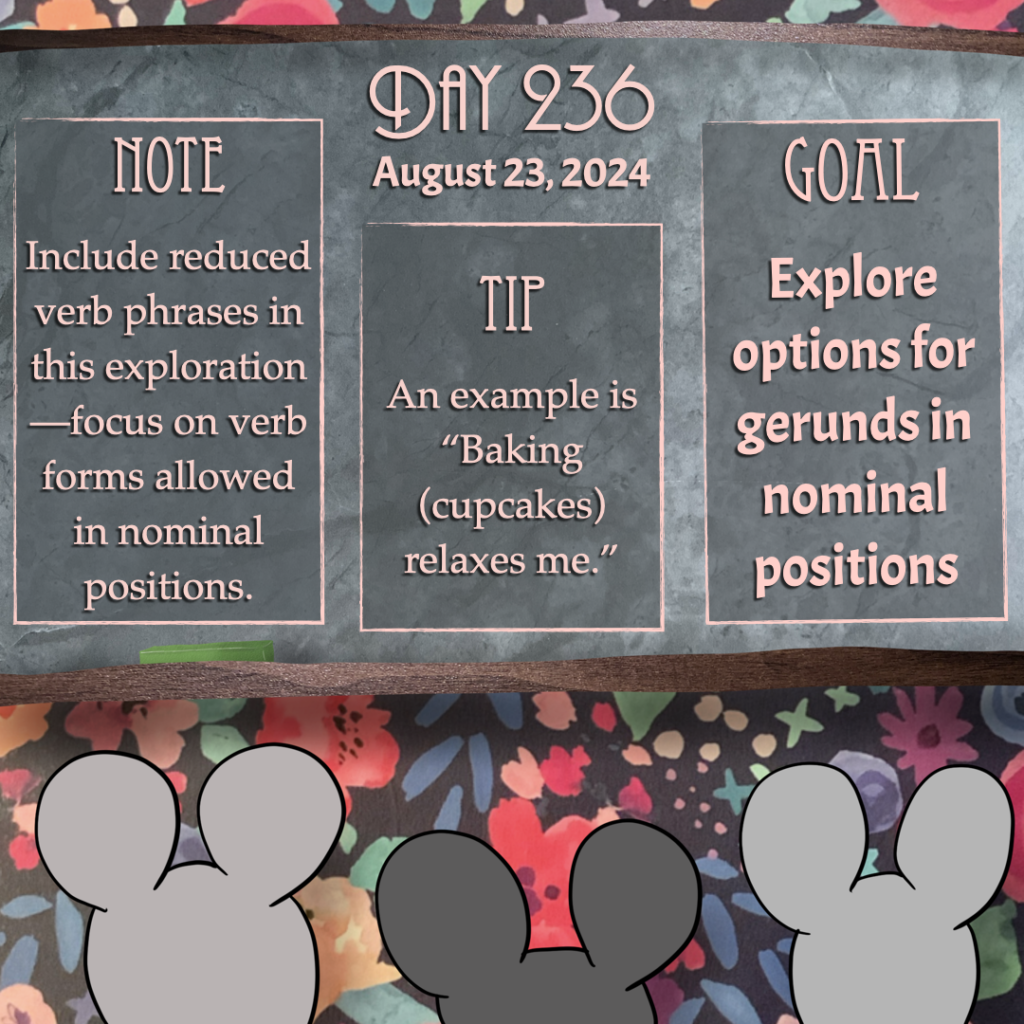
Goal: Explore options for gerunds in nominal positions
Note: Include reduced verb phrases in this exploration—focus on verb forms allowed in nominal positions.
Tip: An example is “Baking (cupcakes) relaxes me.”
Work focus: Learn/Brainstorm/Try
Today’s goal is to explore ways verbs can function as nouns, including gerunds (e.g. “Baking relaxes me”), fuller gerund phrases (e.g. “Baking cupcakes relaxes me”), and reduced clause forms (e.g. “We watched the sun setting over the ocean”). The distinction among these is how much can be incorporated with the verb while serving as a nominal element. In general, these forms are referred to as gerunds, though linguists use other terms depending on the language being described and the theoretical approach taken in the description.
Some options you can consider include these:
- Don’t allow verbs or reduced clauses to function in nominal words. In such an instance, you may require a verb to be derived into a nominal form, such as “-ment” turning the verb “judge” into the noun “judgment.”
- Allow a non-finite form of a verb (e.g. infinitive, participle) to function as a gerund, as in “I enjoy knitting,” where “knitting” is the object of the verb “enjoy.”
- Allow elements to occur within the predicate of a gerund, as in “She quit drinking tea,” where “drinking tea” is the object of the verb “quit.” These kinds of phrases may be expanded even more, as in “She quit drinking tea in the mornings” (i.e. she still drinks it, just not in the mornings anymore).
- Allow even more elements within the non-finite clause functioning in a nominal role, as in “They watched the children playing tag in the park.” The object of “watched” is a reduced clause structure that incorporates a subject (“the children”), an object (“tag”), and an adpositional adjunct (“in the park”). The structure is built around the non-finite verb “playing.”
Test out scenarios in your language and decide which option feels right for your language!
